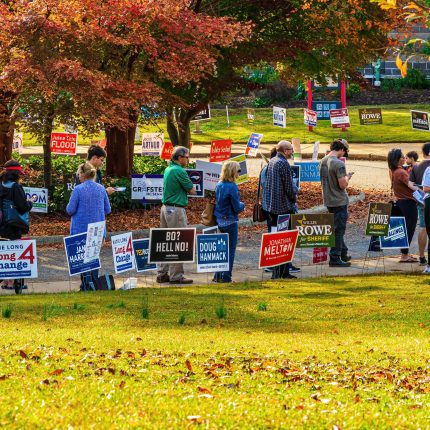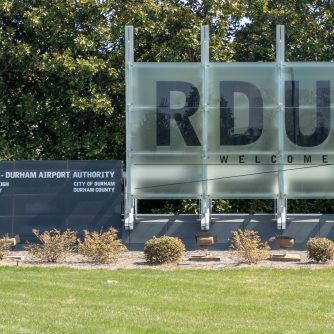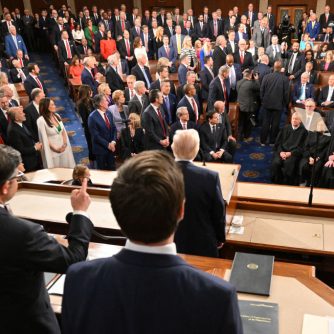In a timely conversation on Carolina Newsmakers, Karen Brinson Bell, Executive Director of the North Carolina State Board of Elections, spoke with Don Curtis about the upcoming 2024 elections. Bell provided insights into the election process, discussed changes to voting procedures, and emphasized the importance of voter participation.
The State of the 2024 Election Process
Karen Brinson Bell has been overseeing elections in North Carolina since June 1, 2019. In her role, she leads the efforts to ensure that every election is conducted smoothly, securely, and fairly. With the 2024 general election underway, Bell described the key milestones and tasks that her team is working on.
One of the significant changes in this election is the earlier absentee-by-mail voting process. North Carolina began sending out absentee ballots to military personnel, overseas citizens, and other North Carolinians who requested them as early as mid-September. Bell highlighted that the state had to pivot after a court decision delayed the start of absentee voting, but her team worked diligently to adapt and meet the demands of the new schedule.
Early Voting and Election Day Preparations
Early in-person voting continues to be one of the most popular methods of casting a ballot in North Carolina. Bell mentioned that approximately 60 to 65% of voters in the state typically choose to vote early, underscoring the importance of providing ample opportunities for early voting. In fact, the state offers a 17-day early voting period, allowing voters the flexibility to cast their ballots at any early voting site within their county.
Election Day itself, on November 5th, will see the remainder of the votes cast. According to Bell, around 30% of North Carolina voters will head to the polls that day. The absentee ballot return deadline coincides with Election Day, with voters needing to ensure their absentee ballots are received by 7:30 PM on November 5th.
Voter Education and Awareness
One of Bell’s key priorities is making sure voters are aware of their options. From absentee voting to early in-person voting, the North Carolina State Board of Elections offers a variety of ways for citizens to participate in the democratic process. Bell noted that voters could even vote from the comfort of their homes, adding that this option has become increasingly popular since the pandemic.
Voter turnout in North Carolina is expected to be strong. Bell referenced the 2020 election, where turnout reached 75%. She expressed optimism that the 2024 election will see similarly high levels of participation, with approximately 6 million ballots expected to be cast.
Addressing Voter Fraud and Security Concerns
Bell acknowledged that some voters may still harbor concerns about the security of voting, particularly regarding voter fraud. She reassured the audience that North Carolina has robust systems in place to prevent fraud. Voter records are carefully managed, and each vote is tracked, ensuring that individuals who vote early or by mail cannot vote again on Election Day.
Moreover, election officials undergo rigorous training, and every county in the state is responsible for testing voting equipment before each election. The state has a reconciliation process to ensure the accuracy of the election results. Additionally, post-election audits are conducted to verify the integrity of the voting process.
The Role of Local Boards and Election Workers
Running a successful election requires a coordinated effort between the state and county boards of elections. Bell praised the hard work of county elections officials, many of whom work long hours to prepare for early voting, absentee ballots, and Election Day itself. She also emphasized the vital role of poll workers, known as “Democracy Heroes,” who help ensure the election runs smoothly.
Despite the pandemic’s challenges in 2020, Bell noted that it also inspired new groups of people to step forward and volunteer as poll workers. Many younger individuals, who had not previously been involved, stepped in to help during a time when the older population—traditionally more active as poll workers—was at higher risk.
Voter ID and Accessibility
Voter ID requirements have long been a topic of discussion in North Carolina. Bell explained that North Carolina now requires a photo ID to vote, but the state has made this requirement flexible by accepting various forms of identification, including driver’s licenses, passports, veteran’s IDs, and more. For those who do not have access to an acceptable form of ID, county boards of elections provide free voter ID cards.
The state is also committed to ensuring that the ID requirement does not prevent anyone from voting. If a voter cannot present an ID on Election Day, they can cast a provisional ballot and follow up with their county board of elections to confirm their identity.
Looking Ahead
As North Carolina’s population grows, so too does the responsibility of the State Board of Elections. With 7.6 million registered voters, Bell and her team are preparing for what is expected to be another high-turnout election. She remains confident that the state’s election infrastructure is ready for the challenge, with preparations in place to ensure every eligible voter has the opportunity to participate.
Bell’s message is clear: North Carolinians have multiple ways to vote, and every effort is being made to ensure that the process is accessible, secure, and efficient.





